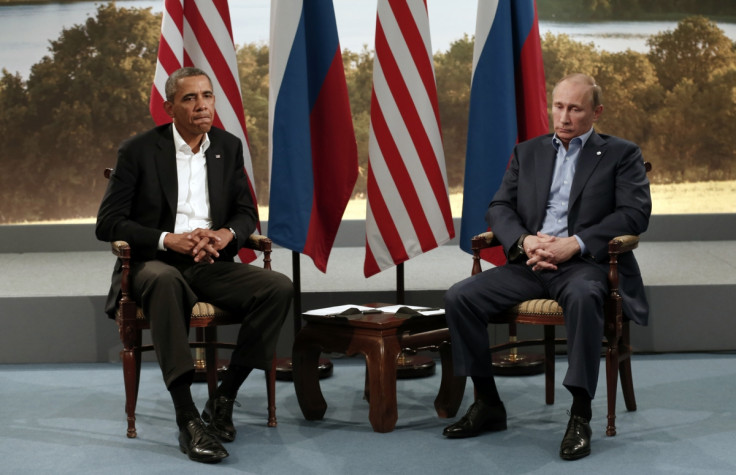Is Russian Business too Complacent Over Economic Sanctions?

The European map was effectively redrawn last week, but you wouldn't be able to tell by listening to Russian businesses.
Following a blip of volatility and short-breathed anxiety in the wake of Crimea's annexation, the Russian markets have gradually clawed back lost ground. When the rouble temporarily plunged in value, a timely central bank intervention propped up the Russian currency at an acceptable level.
Ukrainian and Russian individuals subjected to sanctions and travel bans have reacted with indifference. When he learned that Bank Rossiya was on the United States' sanctions list, Russian President Vladimir Putin immediately announced that he would open a new account with the bank.
Russian businesses and politicians seem confident that Russia has weathered the storm but is their self-assured swagger actually misguided complacency?
The sanctions imposed caused immediate damage to Russian markets but businesses seem to think this will be a short-term, reversible trend.
Capital outflows have been swift. Russia's Economy Ministry said that $70bn had left the country in the first quarter this year. When you consider that figure next to the $63bn that left the country in the whole of 2013, the severity of the impact is clear.
However, the markets and the rouble have rebounded steadily since the initial plunge and Russian assets have regained ground too.
Investors appear confident that Russia won't move to annex any more of its southern neighbour and risk further sanctions. Moscow has stressed that it has no interest in annexing eastern Ukraine and it seems that investors deem an escalation unlikely.
However, Moscow's pledges should be treated with scepticism. The move to annex Crimea took the West by surprise and came after Putin pledged to protect the interests of ethnic Russians throughout Ukraine. Eastern Ukraine has a large ethnic Russian population and while Moscow has troops amassed at the border, it would be foolish to completely rule out an invasion.
While investors tentatively rediscover their appetite for Russian markets, international businesses based in Russia seem undeterred by the threat of further sanctions on the country, as they push ahead with plans to hire more staff.
Research carried out by recruiter Antal Russia showed that nearly two-thirds of businesses had no plans to reduce staff, while 60% said they wouldn't slow the rate of new-hires in the country. While the same firms said they were unlikely to raise salaries at the moment, due to ongoing fluctuations in the exchange rate, it seems that businesses aren't afraid that they will be exposed to sanctions.
This confidence has resulted from the timidity of the sanctions already imposed. While political leaders have been strong on rhetoric, Washington and Brussels have limited sanctions to a handful of individuals and a bank.
Yet, it's easy to see why the EU has shown reluctance to go further. Russia currently supplies around a third of Europe's oil and gas and 40% of that gas comes through Ukraine. With alternative energy options limited in the short term, the EU is unlikely to push for tougher sanctions that could have disastrous consequences for its nascent economic recovery.
Moreover, there are numerous trade deals between the bloc and Russia that governments are loathe to lose at the moment. The EU's reliance on Russia in the short term makes the prospect of sanctions escalating remote, and the markets have shown this in their calculations so far.
However, there is little reason for Russian businesses to be bullish at the moment. The economy has taken a hit from capital withdrawals and is set to experience 0% growth in the first quarter.
According to a report by the World Bank, the Russian economy will contract by 1.8% this year if the country doesn't halt the ongoing crisis over Ukraine.
The collapse in Russian GDP this year follows a disappointing 2013, where growth fell to 1.3%. That was down from 3.4% in 2012.
While Putin's foreign adventures have won him popular acclaim in the short-term, falling growth and the potential for a recession this year should act as a warning to the President. The not-so-distant memory of the 1998 financial crisis looms behind the current triumphalism among the Russian public.
In a worst case scenario, Russian aggression in Ukraine would antagonise the US and the EU to impose broader sanctions. In turn, Russia would most likely disrupt energy supplies to the EU which could drag the world into a new recession.
While that scenario remains unlikely for now, it wouldn't take much to arrive there.
© Copyright IBTimes 2025. All rights reserved.






















